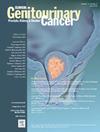转移性肾细胞癌的治疗模式和损耗:来自土耳其肿瘤组肾癌联盟(TKCC)数据库的真实经验。
IF 2.3
3区 医学
Q3 ONCOLOGY
引用次数: 0
摘要
导语:尽管过去十年来转移性肾细胞癌(mRCC)的治疗方法发展迅速,但在世界某些地区,获得新疗法仍然存在挑战。尽管治疗取得了进步,但减员率仍然居高不下。本研究旨在评估土耳其肿瘤诊所mRCC患者的治疗模式和损耗率。患者和方法:2008年1月1日至2022年12月31日期间诊断为mRCC的患者,使用土耳其肿瘤组织肾癌联盟(TKCC)数据库回顾性评估一线全身治疗数据。结果:最终分析共纳入1126例患者。第2、3、4、5线治疗的患者比例分别为62.8%、27.4%、8.9%和2.1%。两组患者最常使用的药物为:一线使用酪氨酸激酶抑制剂(TKIs)(52.2%)和干扰素(IFN)- α(43.3%),二线使用TKIs(66.3%)和免疫治疗(IO)单药(25.9%),三线使用TKI(41.4%)和mTOR抑制剂(28.8%),第四线使用TKI(44.4%)和mTOR抑制剂(29%),第五线使用IO单药(37.5%)和TKI(25%)。对于一线治疗,耗损的主要原因是疾病进展(66.4%),其次是毒性(16.5%)、死亡(11.2%)和患者偏好(5.9%)。所有治疗线药物消耗的主要原因是疾病进展。随着时间的推移,TKIs在一线治疗中的使用增加,而ifn - α的使用下降。尽管基于io的联合疗法的使用仍然有限,但IOs开始在较早的产品线中使用,主要用于二线治疗。结论:这项研究强调,尽管在治疗选择方面取得了重大进展,但新药物的采用仍然缓慢,损耗率仍然很高。这些发现表明,与发达国家相比,中国在全身治疗方面存在差距。本文章由计算机程序翻译,如有差异,请以英文原文为准。
Treatment Patterns and Attrition in Metastatic Renal Cell Carcinoma: Real-Life Experience from the Turkish Oncology Group Kidney Cancer Consortium (TKCC) Database
Introduction
Despite the rapid evolution in management of metastatic renal cell carcinoma (mRCC) over the past decade, challenges remain in accessing new therapies in some parts of the world. Despite therapeutic advancements, attrition rates remain persistently high. This study aims to assess the treatment patterns and attrition rates of patients with mRCC in oncology clinics across Turkey.
Patients and Methods
Patients diagnosed with mRCC between January 1, 2008, and December 31, 2022, with first-line systemic treatment data, were retrospectively evaluated using the Turkish Oncology Group Kidney Cancer Consortium (TKCC) Database.
Results
The final analysis included a total of 1126 patients. The percentages of patients treated in the 2nd, 3rd, 4th, and 5th lines of therapy were 62.8%, 27.4%, 8.9%, and 2.1%, respectively. The drugs that were most commonly used in the groups were tyrosine kinase inhibitors (TKIs) (52.2%) and interferon (IFN)-alpha (43.3%) for the first line, TKIs (66.3%) and immunotherapy (IO) monotherapy (25.9%) for the second line, TKI (41.4%) and mTOR inhibitors (28.8%) for the third line, TKI (44.4%) and mTOR inhibitors (29%) for the fourth line, and IO monotherapy (37.5%) and TKI (25%) for the fifth line. For the first-line treatment, the primary cause of attrition was disease progression (66.4%), followed by toxicity (16.5%), death (11.2%), and patient preference (5.9%). The primary reason for attrition across all treatment lines was disease progression. Over time, the use of TKIs in first-line treatment increased, while IFN-alpha usage declined. IOs began to be utilized in earlier lines, predominantly in second-line treatment, though use of IO-based combination therapies remains limited.
Conclusion
This study underscores that despite significant progress in therapeutic options, the adoption of novel agents remains slow, and attrition rates are still high. These findings indicate a disparity in systemic therapy compared to developed countries.
求助全文
通过发布文献求助,成功后即可免费获取论文全文。
去求助
来源期刊

Clinical genitourinary cancer
医学-泌尿学与肾脏学
CiteScore
5.20
自引率
6.20%
发文量
201
审稿时长
54 days
期刊介绍:
Clinical Genitourinary Cancer is a peer-reviewed journal that publishes original articles describing various aspects of clinical and translational research in genitourinary cancers. Clinical Genitourinary Cancer is devoted to articles on detection, diagnosis, prevention, and treatment of genitourinary cancers. The main emphasis is on recent scientific developments in all areas related to genitourinary malignancies. Specific areas of interest include clinical research and mechanistic approaches; drug sensitivity and resistance; gene and antisense therapy; pathology, markers, and prognostic indicators; chemoprevention strategies; multimodality therapy; and integration of various approaches.
 求助内容:
求助内容: 应助结果提醒方式:
应助结果提醒方式:


